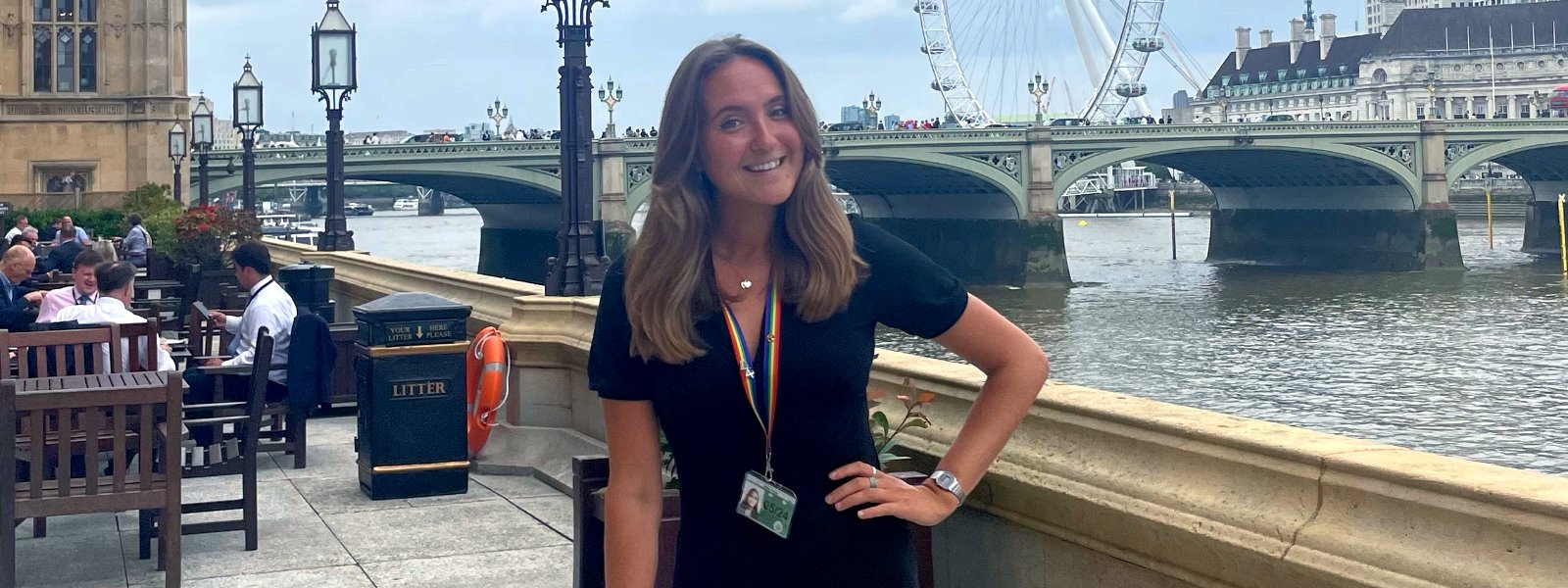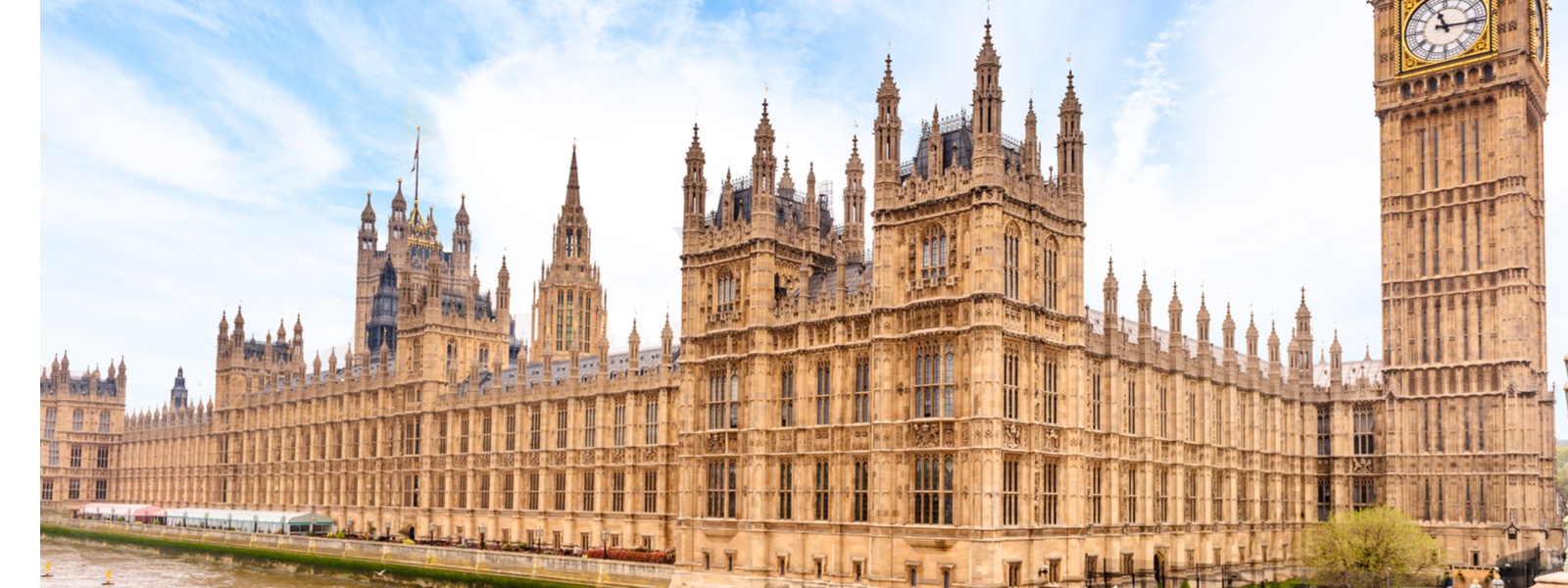
Alison is a graduate of the BA Politics and International Relations & Social Policy and the MSc Public Policy. She is currently working as a Parliamentary Researcher for an MP at Westminster.
Tell us a little about your journey to studying the Masters in Public Policy.
Before my MSc, I was already a student at Strathclyde having completed a joint honours in Politics, International Relations & Social Policy. During my undergrad some of the modules I studied covered gender-based violence & feminism with my dissertation exploring violence against women in Scottish politics.
I loved my department at undergrad - the School of Government and Public Policy - and I had some great mentors that I wanted to continue to learn under. I knew that my strengths were in policy and politics, so it only seemed right to apply for the MSc. I didn’t know exactly what job I wanted to do – but I knew it was going to be in a policy and politics field that required some form of social research skills. I really enjoyed university and the research process, and I felt like I wanted to continue after my Bachelors. I’m still considering whether I want to come back and do my PhD.
Tell us about the format of the programme. What were you doing week-to-week?
The great thing about the MSc programme was the variety and flexibility of the course. You could pick what modules suited your interests and each week we covered different comparative public policy theories.
Week-to-week we had seminars to attend and course work to complete including essays, research proposals, briefings and academic posters. The course allowed me to take modules outside of Public Policy including Feminism and International Relations and Quantitative Methods. Learning how to code for the use of social research is something I really enjoyed – it’s something I still keep up now, so I don’t lose my practical research skills entirely.
What were the most enjoyable parts of the Masters?
The most enjoyable part of the MSc was the process of writing my dissertation. Having the freedom to research something that I was passionate about and being able to link it back to my career made the process very rewarding and I could see the real-world application of the research.
My dissertation was titled: A Critical Policy Analysis of Problem Representation in the UK Government’s ‘Tackling Violence Against Women and Girls Strategy’. It allowed me to use qualitative research skills. My undergrad dissertation used quantitative methods, so it was a good opportunity to explore qualitative analysis and explore a policy area that I was already exposed to through my job. It was also interesting to examine the different ways policymakers problematise an issue when creating policy solutions and the impact this has on policy output.
If you want to work in politics or policy, start by finding something you are passionate about - for me it was preventing violence against women and girls - and gain experience in that area.
You’re now working as a Parliamentary Researcher in Westminster. Tell us about your journey to securing the role and what the job is like.
I was really lucky to secure my job in Parliament straight out of my Masters. I handed in my dissertation and moved to London the week after to start. I had already been working in the job part-time during my studies and, while very intense, it set me up for the fast-paced environment of Westminster.
Life as a Parliamentary Researcher varies drastically. With an ever-changing news cycle, no two days in politics are the same and you often end up working to tight deadlines. It consists broadly though of speech writing; letter writing to government ministers; preparing briefings for media and panel discussions; drafting oral and written parliamentary questions; working with third sector charities and stakeholders in your Member’s policy area; writing press releases; working on long-term policy projects to help expand your Member’s brief – the list is endless.
The most exciting part is watching your Member deliver a speech that uses the research you have prepared when they are pushing for policy and legislative reform.
How do you feel the MSc helped prepare you for life at Westminster?
Over the course of the MSc, there was always a deadline to meet, or you were always thinking about the next piece of work that needed to be completed. It forced me to develop good time management skills, meaning I could submit coursework, go to work and still make time for my friends, family, sport and selfcare.
What advice would you give to somebody looking to work in a similar role in politics?
Don’t be afraid to ask for experience. I didn’t know that a job like this existed until I first interned with an MP in 2019. Before that in 2018, I chanced it and asked for work experience at my local council in the housing department as, at the time in Social Policy, we were looking at housing policy. Gaining experience there meant I had the skills to apply for an internship with an MP, and having the internship ultimately lead to me having enough experience to work full time in an MP’s office.
I think there are still several barriers that stop graduates entering this field, but if you want to work in politics or policy, start by finding something you are passionate about - for me it was preventing violence against women and girls - and gain experience in that area.
